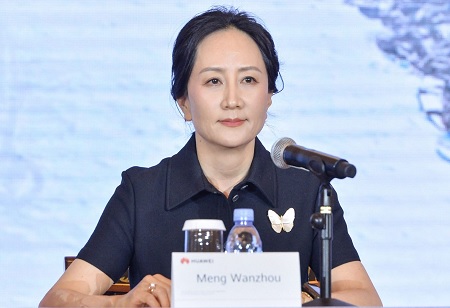
Meng Wanzhou Aims to Boost Huawei's Asia-Pacific Presence with AI, Digitalization

 Huawei Technologies, the Chinese telecommunications equipment manufacturer, is exploring prospects in digital and artificial intelligence (AI) across the Asia-Pacific region, as stated by its deputy chairwoman, Meng Wanzhou. This move underscores the company's efforts to recapture market presence in the area.
Huawei Technologies, the Chinese telecommunications equipment manufacturer, is exploring prospects in digital and artificial intelligence (AI) across the Asia-Pacific region, as stated by its deputy chairwoman, Meng Wanzhou. This move underscores the company's efforts to recapture market presence in the area.
“AI foundation models are trained on global data, but huge gaps remain between different countries and regions when it comes to access and application”, Meng said in a video speech on during an event jointly held by the ASEAN Foundation and Huawei in Bangkok. “These gaps will not close on their own; we need to work together to bridge them”.
Meng, who is also the chief financial officer of Huawei and daughter of company founder Ren Zhengfei, said Huawei will continue to work with partners in advanced 5G, cloud computing and digital power to lower energy consumption, as well as participate in the digital and AI transformation initiatives across the Asia-Pacific region. Meng was celebrated at home as the face of China’s resistance to US sanctions aimed at curtailing Chinese technology development over national security concerns. She returned to China in 2021 after a nearly three-year court battle over an extradition request from the US, during which time she was under house arrest in Vancouver.
Following her return, Meng has taken on the role of rotating chairman at Huawei, solidifying her position as the heir-apparent within the Chinese technology behemoth. During a company event in Shanghai last September, Meng articulated Huawei's commitment to adopting a fresh "all intelligence" strategy aimed at transitioning into a pivotal provider of computational capabilities to bolster China's AI sector.
Meng told the Bangkok event that Huawei looks to help accelerate the transformation of all industries. “We want to make all things connectable, all applications modelable, and all decisions computable”, Meng said in the video.
Huawei's dedication to the Asia-Pacific market follows a period of dwindling revenues in the region, primarily stemming from its inclusion in a US trade blacklist in 2019. The situation worsened as US-led technological constraints on Huawei escalated post-2020, leading to the loss of access to advanced semiconductors developed or manufactured with US technology. This development significantly impacted Huawei's formerly thriving smartphone business, which had briefly overtaken Samsung Electronics and Apple in global smartphone shipments at the beginning of 2020.

